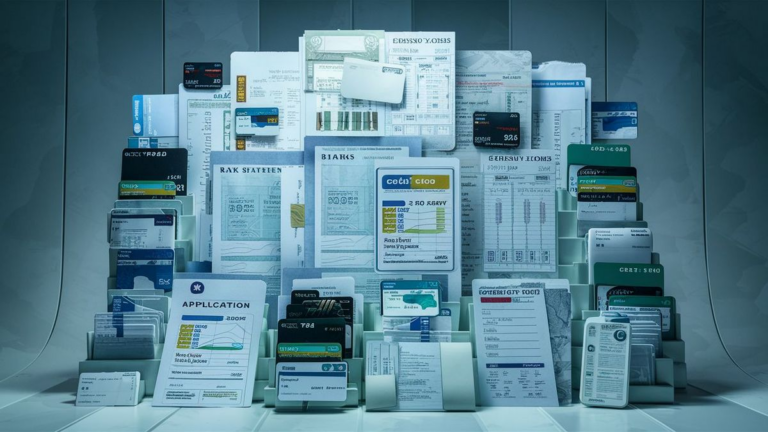In the realm of personal finance, acquiring a credit card can be a pivotal step towards building a solid credit history. However, not all credit cards are created equal, and some may be easier to obtain than others. For individuals seeking their first credit card or those aiming to rebuild their credit, the quest for the easiest credit card to get becomes paramount.
The Landscape of Credit Cards
Understanding the various types of credit cards available can significantly impact your ability to obtain one. Credit cards generally fall into three main categories: secured, unsecured, and prepaid.
Secured Credit Cards
Secured credit cards require a cash deposit as collateral, typically equal to the card’s credit limit. These cards are often recommended for individuals with limited credit history or poor credit scores. The deposit minimizes the risk for the issuer, making approval more accessible for applicants.
Unsecured Credit Cards
Unsecured credit cards do not require a cash deposit and are the most common type of credit card. Approval for these cards is based on creditworthiness, including factors such as credit score, income, and debt-to-income ratio.
Prepaid Credit Cards
Prepaid credit cards function differently from traditional credit cards as they are not a form of credit. Users load funds onto the card, and purchases are deducted from the balance. Approval for prepaid cards is typically guaranteed since there is no credit risk for the issuer.
Factors Affecting Approval
Several factors influence the ease of obtaining a credit card:
- Credit Score: A higher credit score increases the likelihood of approval for unsecured credit cards.
- Income: Demonstrating a steady income stream can boost your chances of approval, especially for unsecured cards.
- Debt-to-Income Ratio: Maintaining a low debt-to-income ratio indicates financial stability, making you a more attractive applicant.
- Employment History: Stable employment history reflects reliability and may improve your approval odds.
Options for Easiest Credit Cards to Get
While each individual’s financial situation varies, several credit cards are known for their lenient approval requirements:
| Card Name | Type | Key Features |
|---|---|---|
| Capital One Platinum Credit Card | Unsecured | No annual fee, potential credit limit increase after six months of on-time payments |
| Discover it® Secured Credit Card | Secured | Opportunity to upgrade to an unsecured card, cashback rewards on purchases |
| OpenSky® Secured Visa® Credit Card | Secured | No credit check required, flexible deposit options |
These cards often cater to individuals with fair to poor credit, providing a pathway to establish or rebuild credit responsibly.
Applying for the Easiest Credit Card
When applying for a credit card, it’s essential to review the eligibility criteria and choose a card aligned with your financial goals and credit profile. Here are some steps to enhance your chances of approval:
- Check Your Credit Report: Review your credit report for inaccuracies and address any discrepancies before applying.
- Compare Options: Research various credit cards and select one tailored to your credit history and spending habits.
- Prequalify: Some issuers offer prequalification tools, allowing you to gauge your likelihood of approval without impacting your credit score.
- Complete the Application: Fill out the application accurately and truthfully, providing all necessary documentation.
- Monitor Your Application: Stay informed about the status of your application and follow up if necessary.
Choosing the easiest credit card to get requires careful consideration of your financial circumstances and goals. While secured credit cards may offer higher approval rates for those with limited credit history or poor credit scores, unsecured options with lenient approval criteria also exist. By understanding the factors influencing credit card approval and selecting a card aligned with your needs, you can embark on a journey towards building or rebuilding your credit responsibly.
equently Asked Questions
Here are some common queries regarding obtaining credit cards:
What if I have no credit history?
If you have no credit history, securing a traditional unsecured credit card might be challenging. In such cases, starting with a secured credit card could be a viable option. Secured cards require a deposit, which serves as collateral, making approval more feasible even without a credit history.
Can I improve my chances of approval with a co-signer?
Having a co-signer with a strong credit history can indeed improve your chances of approval, especially if you have limited credit or a poor credit score. The co-signer essentially guarantees the debt, which reduces the risk for the issuer and increases the likelihood of approval.
Are there credit cards specifically designed for students?
Yes, many credit card issuers offer cards specifically tailored to students’ needs. These cards often come with lower credit limits and are designed to help students build credit responsibly. They may also offer perks such as cashback rewards on common student expenses like groceries and gas.
Understanding Credit Card Rewards
In addition to considering the ease of approval, it’s essential to understand the rewards and benefits offered by different credit cards:
| Card Name | Rewards | Annual Fee |
|---|---|---|
| Chase Freedom Unlimited | Unlimited 1.5% cashback on all purchases | $0 |
| Citi Double Cash Card | 1% cashback when you make a purchase and another 1% cashback when you pay it off | $0 |
| Blue Cash Preferred Card from American Express | 6% cashback at U.S. supermarkets (up to $6,000 per year in purchases, then 1%), 6% cashback on select U.S. streaming subscriptions, 3% cashback on transit and U.S. gas stations, 1% cashback on other purchases | $95 |
Consider your spending habits and priorities to choose a card that maximizes your rewards while minimizing costs.
See also:






